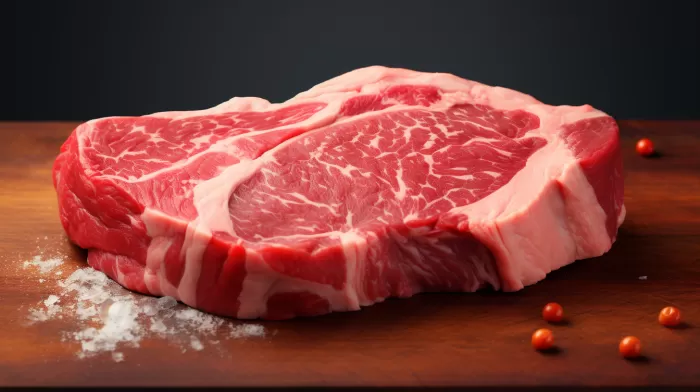You might think you’ve got your sugar intake under control; you avoid soft drinks and sugary snacks. But did you know there’s a hidden sugar lurking in some of your favorite foods that has been linked to cancer? This nefarious substance is called Neu5Gc, and it’s present in red meat. Researchers at the University of California-San Diego have found that Neu5Gc increases inflammation and stimulates cancer in lab animals.
What is Neu5Gc, and Where Can You Find It?
Neu5Gc is a sugar molecule that’s prevalent in the tissues of most mammals, but it’s not produced by the human body. In laboratory studies in California, strong evidence has been presented to suggest that Neu5Gc may be the reason why consuming large amounts of red meat can increase your risk of cancer.
The lab research looked at commonly consumed foods and discovered that red meats like lamb, pork, and beef are potent sources of Neu5Gc. They also found that this sugar is quickly absorbed by the digestive tract before being circulated in the blood and distributed throughout the body’s tissues.
The Link between Neu5Gc and Cancer
“Until now, all of our evidence linking Neu5Gc to cancer was circumstantial or indirectly predicted from somewhat artificial experimental setups,” says researcher Ajit Varki, who is with the University of California-San Diego Moores Cancer Center. “This is the first time we have directly shown that mimicking the exact situation in humans — feeding non-human Neu5Gc and inducing anti-Neu5Gc antibodies — increases spontaneous cancers in (lab animals).”
While it has not been definitively proven that this sugar causes cancer in humans, Varki does not doubt that it does. “The final proof in humans will be much harder to come by,” he says. “But on a more general note, this work may also help explain potential connections of red meat consumption to other diseases exacerbated by chronic inflammation, such as atherosclerosis and type 2 diabetes.”
How Can You Reduce Your Neu5Gc Intake?
To reduce your exposure to Neu5Gc and potentially decrease your risk of cancer and other inflammation-related diseases, consider cutting back on your consumption of red meat. The American Institute for Cancer Research (AICR) recommends limiting red meat consumption to no more than 18 ounces of cooked red meat per week. It might also be wise to replace some of your red meat meals with healthier, plant-based protein sources like beans, lentils, chickpeas, and tofu.
In addition to cutting back on red meat, consider these other steps to minimize your Neu5Gc intake:
- Limit processed meats: Processed meats like bacon, sausages, hot dogs, and deli meats are typically high in Neu5Gc. The AICR also warns that there is strong evidence that eating processed meats can increase cancer risk.
- Choose lean cuts of meat: When you do enjoy red meat, opt for lean cuts like sirloin or round steak, and trim any visible fat before cooking.
- Incorporate more fish and poultry: Fish and poultry contain much lower levels of Neu5Gc compared to red meat. Swap out some of your red meat meals for fish and poultry options, like salmon or grilled chicken breast.
- Cook at lower temperatures: Studies have shown that cooking meat at high temperatures, such as grilling or frying, can increase the production of harmful compounds, including Neu5Gc. Instead, try cooking your meat at lower temperatures using methods like braising, steaming, or boiling.
Conclusion
While more research needs to be conducted to definitively link Neu5Gc consumption to cancer in humans, it’s clear that reducing your intake of red meat may have a host of health benefits, including decreasing your risk of cancer and other inflammation-related diseases. By cutting back on red meat and processed meats and incorporating more plant-based protein sources into your diet, you’ll be taking a proactive step towards a healthier you.



